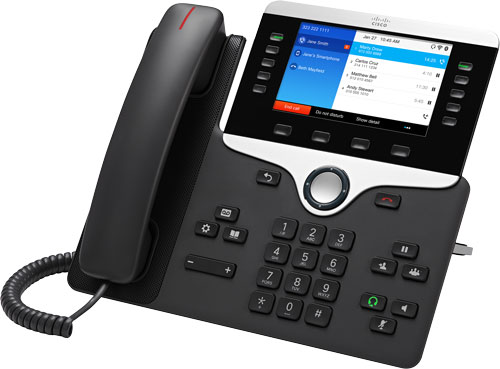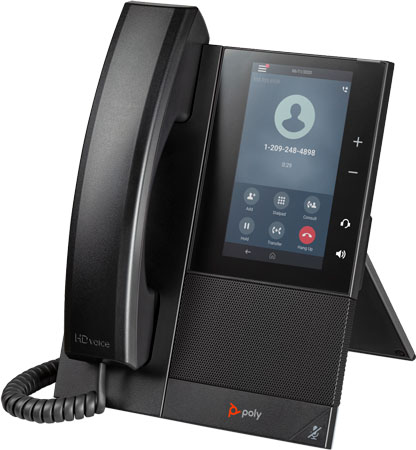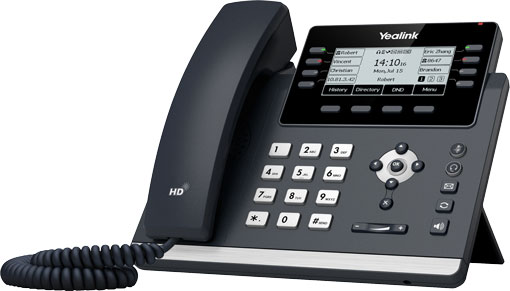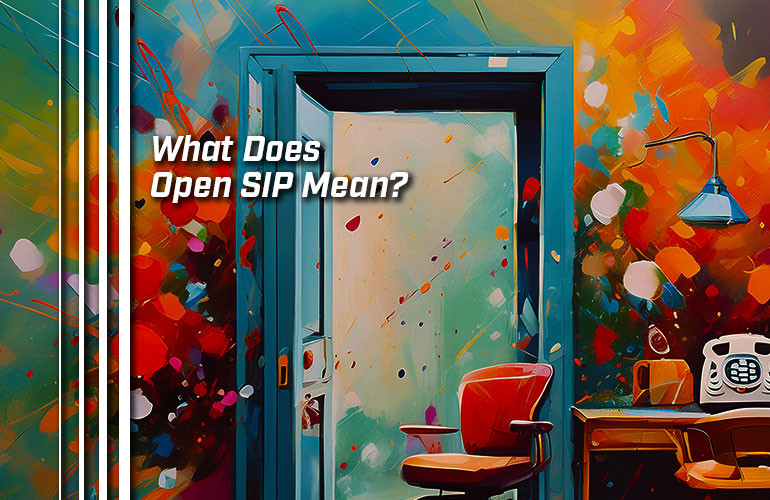When shopping for VoIP phones, you’ll come across a lot of terminology. One of the more puzzling ones is “Open SIP.”
SIP Phones are the most common type of VoIP phone on the market today. SIP is an open standard communications protocol that has been adopted by the vast majority of VoIP phone systems and cloud phone services. The wide usage of SIP-based systems means most SIP phones are interoperable with a broad range of platforms.
But there are important caveats you have to be aware of.
If SIP is an open standard, why are there “Open SIP” phones?
In this blog, we clearly explain what Open SIP means and what the advantages of Open SIP are for your business.
If you’d like a general introduction to SIP, check out our blog, “ What Is a SIP Phone? An Easy to Understand Explainer.”

Open SIP Means Interoperable
While SIP is by far the most common VoIP protocol, there are other competing VoIP protocols or customized versions of SIP that require a distinction.
Cisco, for many years, has produced IP phones that work exclusively with Cisco Unified Communication Manager (Cisco UCM), like Cisco IP Phone 8861 (CP-8861-K9). This phone is a SIP phone, technically, in that it uses the SIP protocol to initiate calls, but it’s not an “open” SIP phone, because it can’t be used with third-party platforms.
Instead, Cisco has produced what they call “Multiplatform” or “3PCC” models, like Cisco IP Phone 8861 with Multiplatform Phone Firmware (CP-8861-3PCC-K9). 3PCC stands for “3rd Party Call Controller.” You might also see these phones called “Open SIP” phones, because they can be used with third-party platforms.
With the new Cisco Desk Phone 9800 Series phones like Cisco 9841 (DP-9841-K9=) and Cisco 9851 (DP-9851-K9=), you’ll also see Open SIP. But there is only one model of each phone, because the Cisco 9800 Series phones work with Open SIP platforms, plus Cisco UCM and Cisco Webex Calling.
In fact, Webex Calling, the new standard phone system that essentially replaces Cisco UCM, uses the Open SIP Cisco phones. Their phone system is no longer locked to Cisco first-party phones. You get choice.
Another example is Poly, who use “Open SIP” to denote a different distinction. The Poly CCX Series of IP Phones was initially released as a Microsoft Teams-exclusive line-up. However, they’ve also released non-Teams versions. For example, there’s now a Poly CCX 505 Microsoft Teams Version and a Poly CCX 505 Open SIP Version.
If you want to use a CCX 505 with a non-Teams platform, you have to go with the Open SIP model.
It’s also worth noting that Microsoft Teams has started supporting SIP phones using Microsoft Teams SIP Gateway. If you’d like to know more about SIP Gateway, check out our blog, “ Can You Use SIP Phones with Microsoft Teams?”

Open SIP Isn’t Always Labelled
Poly and Cisco are two examples of brands who label VoIP phones as Open SIP or something similar. However, many brands don’t distinguish “Open SIP” in their material.
For example, Yealink produces the MP Series of phones for Microsoft Teams and Zoom Phone. They also produce many models of SIP phones, like Yealink SIP-T43U. Yealink doesn’t call T43U an “Open SIP” phone like Poly or Cisco would, but it is as much an Open SIP phone as either Cisco 3PCC or Poly Open SIP phones are.
Yealink, Grandstream, Fanvil, and many other brands don’t label their phones Open SIP. But just because they don’t, doesn’t mean the phones aren’t “Open SIP.”

Open SIP Doesn’t Mean Perfect Performance
One final thing to know: just because a phone is Open SIP, doesn’t mean it’ll work perfectly with every SIP phone system.
Each SIP-based system, service, and platform has models of phones (and versions of firmware) that have been tested for interoperability. These phones will be labelled compatible, compliant, supported, or something similar.
Before buying a SIP phone, always check your VoIP phone system’s compatibility information.

